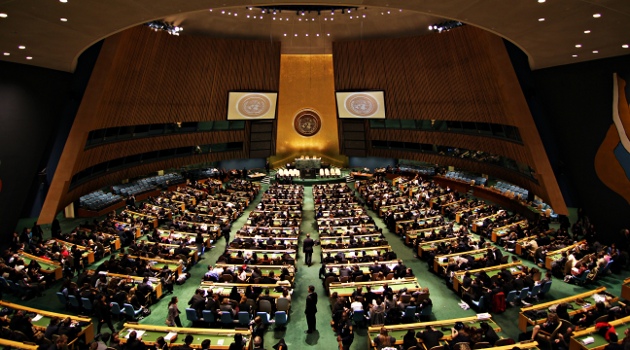Back in 2017, the Center for Freedom and Prosperity released this video, which shows that free markets and small government are the best recipe for poor nations that want to become rich nations.
The CF&P video was motivated in part by a need to debunk international bureaucracies such as the OECD and IMF, which abandoned the “Washington Consensus” for economic liberalization and instead have been making the odd argument that prosperity can be achieved with higher taxes and a bigger burden of government spending.
Needless to say, neither of these international organizations has bothered to explain how such dirigiste policies produce more growth.
But the politicians who fund and control such bureaucracies doubtlessly appreciate the message.
You probably won’t be surprised that the United Nations also is on the wrong side of this issue.
A recent report from the New York City-based group regurgitates the anti-market viewpoint.
The argument that pro-market policies automatically benefit the poor is likewise at odds with the evidence. Traditional pro-growth polices, such as lower corporate tax rates, labor ‘reforms,’ deregulation, austerity-driven cuts to services, and privatization
can have devastating effects on the well-being of poor people and the state’s capacity to reduce poverty. …There are various ways to reduce extreme inequality, but redistribution is an essential element. …Significant redistribution is indispensable. …Fair and equitable taxation can lay the foundations for a society that respects and promotes well-being for all. …Low tax revenue has hobbled the capacity of governments to undertake redistributive policies. …The time has come to take social protection seriously.
For those who don’t follow these issues closely, “social protection” is the buzz phrase to describe an ever-bigger welfare state.
 As you might imagine, the report doesn’t provide any evidence to justify the assertion that higher taxes and bigger government will lead to less poverty and deprivation.
As you might imagine, the report doesn’t provide any evidence to justify the assertion that higher taxes and bigger government will lead to less poverty and deprivation.
Which is an excuse to recycle my “never-answered question” since I’m still waiting for someone to show me a nation that became rich with the types of statist policy that the U.N. has embraced.
The most remarkable part of the report is buried toward the end. The United Nations actually argues that the poor will be better off if there is less economic growth.
A ‘pro-poor’ growth scenario necessitates a far smaller increase in global GDP and eradicates poverty much sooner. If every country reduced its Gini index by 1 percent per year, it would have a larger impact on global poverty than increasing each country’s annual growth one percentage point above current forecasts.
This is bad math, bad logic, and terrible economics.
And it assumes politicians can deftly re-slice a shrinking pie so that poor somehow get more than they have now (while ignoring Thomas Sowell’s sage warning that wealth can only be redistributed one time).
I’d like the United Nations (or any person or group) to show me a single example – at any point in world history – where less growth has improved conditions for poor people.
For what it’s worth, I can show lots of evidence that growth is the best recipe for helping the less fortunate, even though folks on the left may not be happy since rich people also benefit from economic growth.
I can’t resist pointing out one additional passage from the report. And this one was on the first page.
Poverty is a political choice.
In reality, poverty is the normal state of human existence (an observation that Tim Worstall also made in his CapX column criticizing the U.N. report).
What’s unusual – as explained in videos by Don Boudreaux and Deirdre McCloskey – is that parts of the world became rich beginning a couple of hundred years ago thanks to a new approach called capitalism.
(Though I suppose those five words from the U.N. report can be viewed as accurate. After all, governments perpetuate poverty by failing to copy the good policies of places such as Hong Kong and Singapore. But that’s not what the report means. Instead, we’re supposed to believe that politicians are allowing poverty by not choosing big government.)
P.S. If there was a contest for worst analysis from an international bureaucracy, I still think the IMF deserves to win since it has explicitly embraced the crazy notion that it’s okay to hurt the poor so long as the rich are hurt even more.
P.P.S. Indeed, the report I’m writing about today isn’t even the U.N.’s worst publication. That “honor” belongs to the 2018 report that blatantly lied about the prevalence of poverty in the United States.
———
Image credit: Basil D Soufi | CC BY-SA 3.0.

